

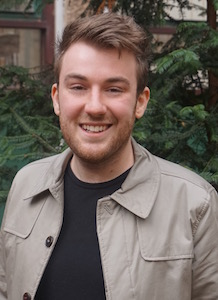 |
Bradley Thomas |
Bradley comes from Derbyshire and is currently working towards his PhD. Previously he completed two summer internships and a final year MSci research project with the Nanocarbon Group. |
|
During his time in the group he has worked in a number of different areas; these include developing heterogenous catalysts, synthesising functionalised fullerenes, performing electrochemistry on nanocarbon systems, and the fabrication of carbon based devices. His PhD continues on these topics, working towards novel carbon based systems for catalytic and energy based applications. |
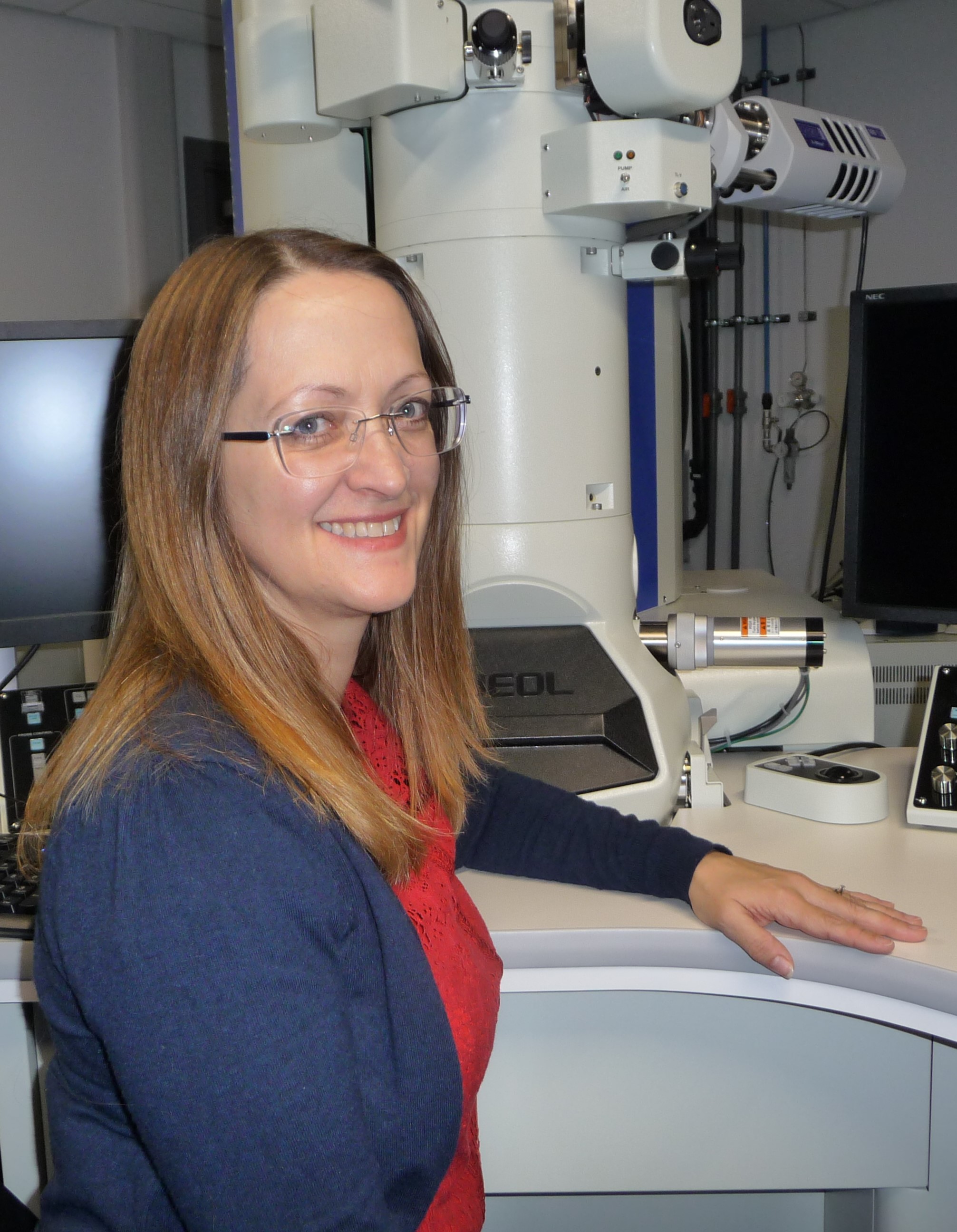 |
Dr. Julie Watts |
Julie is in the last year of her PhD, the controlled assembly of complex networks of functional nanostructures, which aims to elucidate the structure and formation of novel hollow nanoscale carbon structures, and the effect of doping on the properties of this material. This is a joint project with Engineering involving a sustantial materials characterisation aspect, mostly using Transmission Electron Microscopy. |
|
She has an honours degree in Applied Chemistry from Nottingham Trent University, a Translational Neuroscience MSc from the University of Nottingham and 14 years industrial experience in the pharmaceutical and education sectors. |
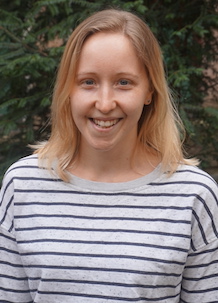 |
Dr. Kate Walker |
Kate comes from Hucknall in Nottingham. She completed an MSci in chemistry here in Nottingham where her final year project involved synthesis and characterisation of organometallic fluorescent dyes. Kate's postgraduate research aims to study photocatalysis within carbon nanotubes. |
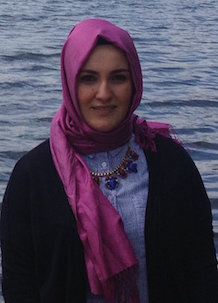 |
Dr. Mehtap Aygun |
Mehtap comes from Turkey where she graduated from the Chemical Engineering Department at Atatürk University. She completed a year research with the nanocarbon group as part of her MRes degree, and has now rejoined the group as a PhD student. She is currently working on the fabrication of novel catalysts based on metal nanoparticles supported in carbon nanotubes/nanoreactors and interested in how the size and shape of these catalysts effect chemical reactions. |
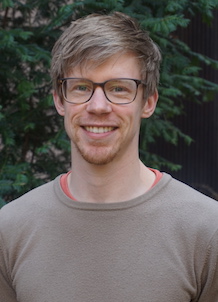 |
Dr. Robert McSweeney |
Rob was a research fellow in the group. His postgraduate work focussed on electrocatalytic and electrochemical reactions inside carbon nanotubes with particular interest in flow electrocatalysis. He worked with metal oxides in SWNT with a focus on polyoxometalates for application based electrochemistry. He has now moved into industry, working for Smiths Detection. |
|
Rob is originally from Hunton in Kent. He completed an MSci in chemistry with honours here in Nottingham where his final year project was based in polymer chemistry. However, he moved to our group to where he completed his PhD investigating redox properties of molecules and catalysts encapsulated within carbon nanotubes. |
 |
Dr. Carlos Herreros Lucas |
Carlos comes from Leon in Spain and started to work with us as an Erasmus student during his final year at Oviedo Universiy. He likes adventure and playing football with friends. Initially, he worked on the encapsulation of nanoparticles using different tubular hollow carbon nanostructures as nanocontainers and has since started his PhD studies with the nanocarbon group. |
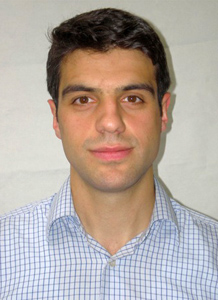 |
Dr. Abdullah Kurtoglu |
Abdullah comes from Bayburt, in Turkey. He completed a BSc in Materials Science and Engineering at the Sakarya University, Turkey. He worked as a research assistant at the Gebze Institute of Technology (GIT) studying novel carbon nanostructures supported electrocatalysis for fuel cell technology. He recently moved to Nottingham and joined the Nanocarbon Group to study for his PhD. |
|
He is currently working on the development of techniques to use carbon nanotubes and nanofibers as metallic nanoparticles support materials for applications in fuel cells. |
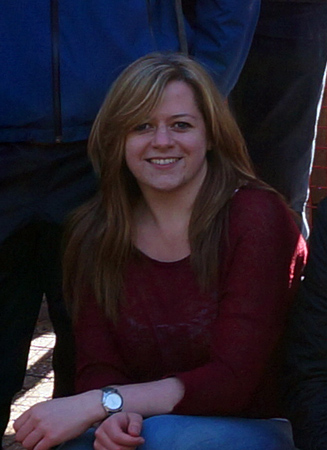 |
Dr. Rachel Gover |
Rachel comes from Congleton in Cheshire, and recently carried out her MSci Chemistry degree at the University of Nottingham. Her fourth year research project with the Astrophysical Chemistry group involved looking at the hydrogenation of Polycyclic Aromatic Hydrocarbon molecules. She is currently doing an interdisciplinary postgraduate research project under the supervision of Prof. Khlobystov and Prof. Peter Sarre, working on the formation and spectroscopy of carbon nanostructures in an astrophysical context. |
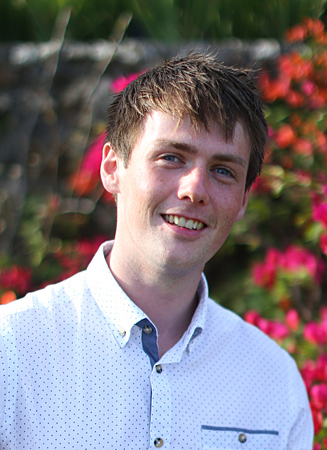 |
Dr. Scott Miners |
Scott is originally from Bristol and started work with the group during the final year of his MSci degree at the University of Nottingham. This involved research into the interactions of metallic nanoparticles with carbon nanotubes with the aim of controlling nanotube length. |
|
Scott's PhD research involved studying chemical reactions confined within narrow carbon nanotubes with the aim of probing the effect of extreme confinement on preparative reactions and developing carbon nanoreactor methodologies. |
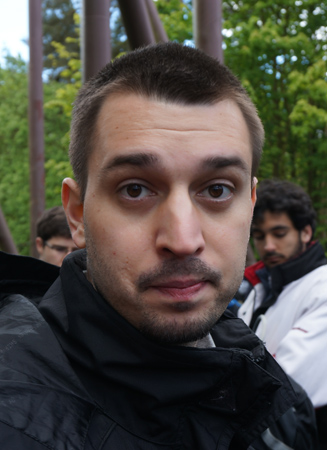 |
Dr. Akos Botos |
Akos comes from Budapest, Hungary and completed an MSc in Chemistry with special faculty in Material Science at the Eötvös Loránd University. His studies involved the encapsulation of fullerenes in carbon nanotubes in supercritical carbon dioxide and their characterisation by vibrational spectroscopy. |
|
He studied towards his PhD within the nanocarbon group and his postgraduate research aimed to investigate the interactions between organometallic complexes and carbon nanotubes. |
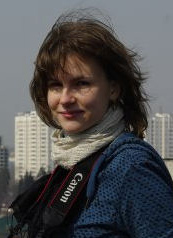 |
Dr. Maria Lebedeva |
Masha is originally from Moscow, Russia where she studied at Moscow State University. She initially completed a summer project here at the University of Nottingham looking at functionalising fullerenes and their interactions with carbon nanotubes and gold surfaces. Masha completed her PhD with us in 2015, researching functionalisation of fullerenes to study their interactions with donor complexes. |
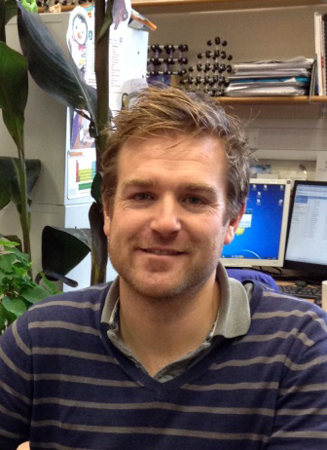 |
Dr. Thomas Chamberlain |
Tom comes from Matlock, in Derbyshire, and completed an MSci in Chemistry here at the University of Nottingham before obtaining a PhD working for Prof. Khlobystov, and Professors Neil Champness in Chemistry and Peter Beton in the School of Physics working on the synthesis of novel functional fullerene molecules and the subsequent formation of fullerene/carbon nanotube peapod structures. |
|
His work focused on the use of supramolecular forces to organise molecules in 1D and 2D arrays utilising carbon nanotubes as templates for potential applications in quantum information processing. He later worked on the development of techniques using carbon nanotubes as both a template for the formation of exciting new nanostructures and as containers for catalytic metal centres for use as nanoreactors. |
 |
Dr. Maria del Carmen Gimenez-Lopez |
Maria originates from Spain where she obtained her Ph.D. degree in Chemistry from Valencia University in 2006. She then joined the University of Nottingham as a postdoctoral research fellow working under the supervision of Prof. Champness and Prof. Khlobystov. In 2009, she was awarded with a two year Marie Curie Intra-European Fellowship, studying the interactions between nanotubes and molecules or nanoparticles with a view to forming unique hybrid materials with potential electronic applications. She then embarked upon a five year Dorothy Hodgkin Research Fellowship at the University of Nottingham entitled "Nano-Magnets in Carbon Nanostructures" from the Royal Society. This work focused on spintronics, a branch of electronics aimed at exploiting spin of an electron in addition to its charge. |
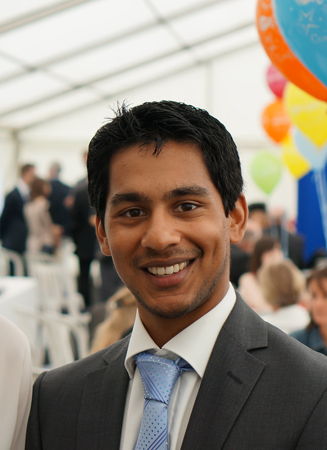 |
Dr. William Arran Solomonsz |
Arran comes from West Bridgford in Nottinghamshire. He obtained a Masters degree in Natural Sciences with Honours in Chemistry and Mathematics from Durham University, his MSci research project involving the study of novel precursors for the synthesis of carbon nanostructures. Arran graduated from Nottingham with a PhD in 2014 having studied metallic nanoparticle-carbon nanotube interactions with applications as carbon nanoreactors. |
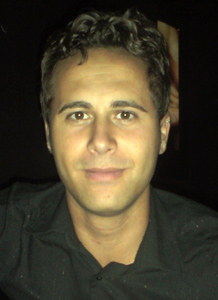 |
Dr. Alessandro La Torre |
Alessandro comes from Italy where he completed a BSc degree in Materials Science at the University of l'Aquila. Motivated by his strong interest in carbon nanotubes, he moved to Nottingham to study as a PhD student at Nottingham University. His postgraduate study aims to probe specific interactions between carbon nanotubes and metallic nanoparticles with the aim of constructing composite materials for catalytic and electronic applications. Currently, he is studying the thermal evolution of gold nanoparticles utilising a variety of different TEM techniques. |
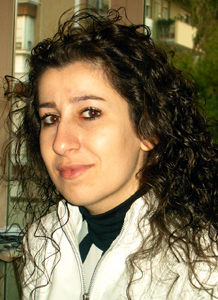 |
Dr. Benedetta Cornelio |
Benedetta graduated in Pharmaceutical Chemistry and Technology at the University of Chieti-Pescara (Italy), studying twice at the University of Reims Champagne-Ardenne, France as part of the Erasmus programme. |
|
Benedetta is currently doing a PhD in co-supervision at the University of Chieti-Pescara and the University of Reims Champagne-Ardenne. Her doctoral research focuses on the application of gold and palladium nanoparticles to the synthesis of bioactive compounds. She has joined the Nanocarbon Group for second time as a visiting student to learn the techniques of synthesis and characterization of carbon nanotube/palladium nanoparticle composites. |
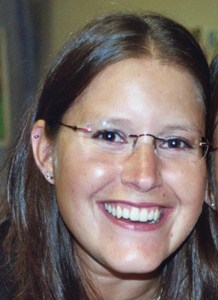 |
Dr. Dorothée Mancel |
Dorothée comes from near Paris, France where she completed a Chemistry Masters at the Université de Pierre et Marie Curie in 2006. This followed a DUT in Chemistry at the IUT in Vitry and a License in Chemistry from the University of Créteil. |
|
Along with her twin sister Charlotte, Dorothée began a PhD at Nottingham in the Autumn of 2006. Her project involved the synthesis of novel fullerene compounds. |
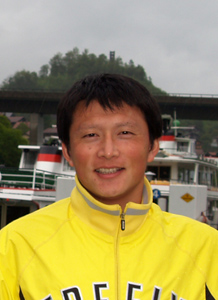 |
Dr. Wang Yu |
Wang Yu comes from Liao Ning, China. He completed an MSc in Chemistry at the State Key Laboratory of Inorganic Synthesis and Preparative Chemistry in Jilin province where he also obtained a Chemistry BSc from Jilin University. |
|
Wang Yu joined us for a PhD in 2005 and his project involved the synthesis of transition metal complexes with functionalised fullerenes. |
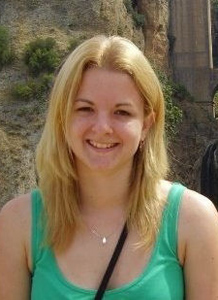 |
Dr. Jessica Ballamy née Hall |
Jessica was a fourth year masters student studying chemistry at the university. She carried out a reasearch project within the group on the interaction of titanium dioxide nanotubes with quantum dots and various other nanoparticles. She is currently working as a PhD student in Martyn Poliakoff's group. |
 |
Dr. Cui Xian Jin |
Xian Jin comes from Jin Zhou in China. Between 1998-2002 he studied towards a BSc in Chemical Engineering at the Institute of Light Industry in Zhenzhou. He then spent a further 3 years until 2005 at the University of Technology and Science of China in Hefei where he was awarded an MSc in Materials Engineering. |
|
Xian Jin was a PhD student within our group, co-supervised by Professor Martin Schröder, and was studying the mechanism of ion exchange in coordination polymers. His work involved ligand synthesis, the growth of crystals and investigation into the exchange of both cations and anions with each ligand type. |
 |
Dr. Martyn Jevric |
Martyn was a postdoctoral research fellow in the Nanocarbon Group working on the synthesis of asymmetric fullerene dimers for quantum information processing applications. He has moved to QIP IRC in Oxford to continue his project. |
|
He comes from Adelaide, Australia, which he modestly claims is the "Best City in the World". Martyn completed both a BSc (Hons) degree in Organic Chemistry and a PhD in Chemistry at the University of Adelaide. His doctoral work specialised in organic transformations using 1,2-dioxenes. He stayed on in Adelaide after his PhD, working as a postdoc for Michael Bruce in organic synthesis, focussing on the redox capabilities of ruthenium acetylides. Martyn then headed to the US for a second postdoc position, working at UC Davis, California with Mark Mascal. This work involved organic synthesis using tricyclic amine motifs, azatriquinane and azatriquinacene. |
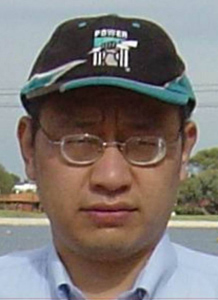 |
Dr. Jingxian Yu |
Jingxian was a postodoctoral research fellow in the carbon nanomaterials group, working on the directed assembly of carbon nanotubes quasi 2-dimensional network. He has moved to Australia and is taking up an ARC (Australian Research Council) fellowship at the University of Adelaide. |
|
Jingxian earned his BEng, MSc and DSc (in electrochemistry) degrees in China. He had one year working experience in industry after MSc degree and worked as a lecturer in electrochemistry for 3 years after DSc degree in China. In 2004, he moved to Adelaide, Australia with his family and started his PhD program (in nanotechnology) with Professor Joe Shapter at Flinders University later. In 2007-8, he worked as a Roger Pysden Research Fellow with Dr Adrian Fisher at the Department of Chemical Engineering, University of Cambridge by financial support from fellowships. Before he joined this group, he worked as a visiting fellow with Professor Peter Beton at the school of physics and Astronomy, University of Nottingham. |
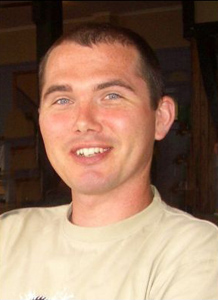 |
Dr. Dan Marsh |
Dan was awarded a Special Lectureship in the School of Chemistry at the University of Nottingham in 2008/9 and continues to be involved in the work of the Nanocarbon Group on an advisory basis. Before moving to the Middle East to teach Physics and Chemistry at the British School of Kuwait, Dan was a postdoctoral Research Fellow studying the directed assembly of functional networks of nanoparticles and carbon nanotubes with an aim towards the eventual production of neural nets for molecular computing applications. This work follows on from work on the ChellNet Project. His interests lie in the creation and manipulation of nanophase structures and their characterisation by advanced techniques such as scanning & transmission electron microscopy, atomic force microscopy and optical spectroscopies. He has a particular passion for the incorporation of novel nanostructured materials into practical, working technologies such as sensors or other novel devices. |
|
Prior to coming to Nottingham Dan spent 3 years as a postdoc in the School of Chemistry at the University of Bristol studying the deposition of nanoparticles onto polyester and cellulose substrates as part of two projects run under the ACORN scheme, an IMPACT-Faraday partnership. Dan completed his doctoral research at the University of Wales, Bangor working within the Electrochemistry & Sensors Group. Dan's undergraduate days were also spent in Bangor where he gained a first class Marine Chemistry degree within Bangor's School of Ocean Sciences. |
 |
Dr. Bimlesh Lochab |
Bimlesh joined us here for 1 year in Nottingham in September 2006, endeavouring to develop methods to coordinate metal ions to carbon nanotubes by covalent exohedral functionalisation, (i.e. modification of the nanotube sidewalls) with an aim to studying the effects of bound metal redox chemistry upon the electronic state of the nanotube. |